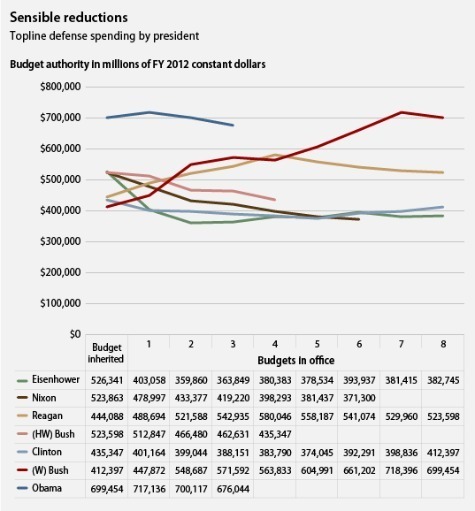Matthew Yglesias's Blog, page 2251
July 6, 2011
Nobody Cares About The Press Corps' Process Questions
The Boston Globe has an interesting info-graphic comparing the past two weeks' worth of White House press corps briefing questions to #AskObama Twitter requests. It quantifies precisely the phenomenon James Fallows noted a long time ago — professional political reporters ask a lot of political process questions. Fully 24 percent of questions at briefings were about congressional negotiations as opposed to just two percent of the questions from Twitter.
This continued to reflect, in my view, the leading failure of the press. It's not exactly that the man on the street is more substance-oriented than your average political journalist. It's more that insofar as the man on the street wants to see some diverting entertainment, he's probably watching a football game or The Real Housewives Of Atlanta. Ordinary people don't care about politics all that much. But when they do decide to pay attention to politics, it's because they're worried about jobs or the environment or energy prices or taxes or something. It's never because they're wondering how the president reacted to Steny Hoyer's remarks about Eric Cantor's characterization of the Treasury secretary's statement about the debt ceiling.


Improving Living Standards In Mexico Driving Reduction In Unauthorized Border Crossings
A great New York Times piece takes a look at the declining level of unauthorized migration across the U.S.-Mexico border and concludes that one of the main drivers has been improvement in conditions in Mexico:
Another important factor is Mexico itself. Over the past 15 years, this country once defined by poverty and beaches has progressed politically and economically in ways rarely acknowledged by Americans debating immigration. Even far from the coasts or the manufacturing sector at the border, democracy is better established, incomes have generally risen and poverty has declined. [...] New census data shows a broad expansion of such services: water and trash collection, once unheard of outside cities, are now available to more than 90 percent of Jalisco's homes. Dirt floors can now be found in only 3 percent of the state's houses, down from 12 percent in 1990. Still, education represents the most meaningful change. The census shows that throughout Jalisco, the number of senior high schools or preparatory schools for students aged 15 to 18 increased to 724 in 2009, from 360 in 2000, far outpacing population growth.
GNI per capita, Atlas method (current US$)
Data from World Bank
I'm not really sure why these realities have tended to escape the debate in the United States. But it's about what you would expect. Mexico has become much less authoritarian, and Mexico-based firms have gained superior access to the lucrative American market. Migration and exports are, to an extent, substitutes for one another. Mexico's not a rich country or a perfectly governed one by any means, but it's richer and better-governed than it was 20 years ago so people are less inclined to leave. In general, though, I think a lot of people have missed the fact that, though it hasn't been as spectacular as the growth in China, Latin America has had a very good run over the past 10 years.


Ladies Love Gay Marriage

Apparently in states where marriage equality has existed long enough for us to have statistics on it, the majority of couples availing themselves of the option are lesbians. Connecticut, Massachusetts, New Hampshire, Iowa, and Vermont all have seen more woman-woman marriages than man-man ones and, indeed, it's not even close.
Like Irin Carmon I'd be interested to see international data on this which might give us a fuller picture. It's also worth pointing out that most studies seem to find that there are more gay men than lesbians out there, so the trend toward the bulk of same-sex married couples being women is really quite striking.


DC's Terrible New Car Sharing Tax
Land in Washington DC is scarce. Because it's scarce, it's expensive. Just try to rent an apartment and you'll see. Meanwhile, we have some firms that are in the car sharing business, and they need access to space to park their cars. Sensibly, the DC government thinks they ought to pay for that scarce resources. Unfortunately they're going about it in a crazy way. Car sharing firms will need to pay $200-$400 a month for a spot even while privately owned cars get a street parking permit for $15 per year.
That's nuts. Let's recap the case for charging car sharing firms for their use of parking spaces. It starts with the observation that a parking space takes up space. And space is scarce. Because it's scarce, it's valuable. And because it's valuable, firms that want to benefit from using the space ought to pay. Makes sense, right? But families are no different. Anyone who wants to take up space in the city to park a car ought to pay money for the privilege. What's the case for offering space at a discount to owners of private cars rather than shared ones? Buying a car is, obviously, more expensive than buying a Zipcar membership. So this is a regressive subsidy on average to households who are easily able to afford car ownership. It's not good for the environment to promote private car ownership. My neighbor owning a private car doesn't generate any positive spillovers that the government needs to be encouraging.


The GOP's Tough Decision

Hans Noel, a Georgetown professor who's one of the authors of The Party Decides, which is the best scholarly work on presidential nominations, has an excellent interview with Greg Marx at CJR about the Republican field. His main point is that journalists should try to look at this from a less candidate-centered view and a more party-centered one. And this is a pretty poor prognosis for Michele Bachmann:
To take a candidate who occupies a very different position in the race, what would you look for if you were covering Michele Bachmann's campaign?
Remembering what we were saying a little earlier, the party base is expanding and shifting. The Tea Party leadership might have a stronger voice now, and her support among them matters. But she's got to have some support outside the Tea Party, or else she's a factional candidate, and that's not going to be enough to get her through contests that are not in Tea Party-friendly states. So I would be looking for, are there major party leaders who are either hostile to the Tea Party or just not deeply involved in the Tea Party who are supportive of her?
Thus far, the answer seems to be no. The good thing she has going for her is that someone has to win. Mitt Romney clearly seems unacceptable to important elements of the party. But relative to Bachmann, Romney can point to things like an endorsement from Rep Jason Chaffetz to demonstrate some support in rock-ribbed conservative circles. Still, what you'd really be looking for is endorsements of Romney from solid conservatives who aren't Mormons. And this kind of void between Bachmann and Romney is why someone like Rick Perry seems to have an opportunity. The party is going to want someone with a clearer and more conservative record than Romney's, but who looks more like a conventional presidential candidate than Bachmann.


Women, Ego, and Politics

Kirsten Gillibrand's desire to see more women in politics is laudable, but this sub-aspiration seems doomed to me:
In fact, Ms. Gillibrand goes a step further, arguing that an infusion of women into the political system would go a long way toward changing the tone in Congress, a male-dominated world of fiercely clashing egos.
"We tend to be more results-oriented and less concerned with getting the credit," Ms. Gillibrand explained. "The female approach is more conciliatory and less combative. We tend to use a more civil tone."
If it's true that women are less egomaniacal than men (plausible), then this seems to me more likely to be a reason that women are underrepresented in political office than to be something that increasing women's representation is likely to change. The system is biased toward egomaniacal people being more likely to succeed and get ahead. We may need to encourage more little girls to grow up to be ego-driven and combative if we want to see them running for office.


Time To Move Beyond The 'Manufacturing' Debate
I continue to find the debate between Ha-Joon Chang and Jagdish Baghwati over manufacturing to be fascinating, though it's framed somewhat oddly. I have no real idea what the phrase "this house believes that an economy cannot succeed without a big manufacturing base" is supposed to mean. The terms "an economy," "succeed," "big," and "manufacturing base" all strike me as dangerously undefined. Chang concedes that Australia is able to "maintain high living standards without a big manufacturing sector, thanks to exceptional natural resource endowments." As it happens, the New York / Newark / Bridgeport Combined Statistical Area contains slightly more people than Australia and also maintains high living standards without a big manufacturing sector, in this case thanks to a high concentration of financial services and media exports. Conversely, obviously the existence of prosperity all around the world is absolutely driven by the existence of a large and growing global manufacturing output. High living standards is largely a matter of possessing a large quantity of manufactured goods, so a place with high living standards either needs to produce a lot of manufactured goods or else to export stuff that's not manufactured goods.
Chang's strongest points seem to me to just have to do with trade rather than manufacturing:
Even if it is of the "successful" variety, deindustrialisation is likely to have a negative effect on a country's balance of payments because services are inherently more difficult to export. At the root of the low "tradability" of services lies the fact that many require their providers and consumers to be in the same location. No one has yet invented ways to provide long-distance hairdressing or house cleaning. Of course, this problem will be solved if the service provider (the hairdresser or the cleaner in the above examples) can move to the customer's country, but that in most cases means immigration, which most countries restrict heavily.
I think this is a slightly confused way to put it. It's not that "services" as a whole are "inherently" difficult to export. Rather, it's that we'd be better off drawing an analytic distinction between tradable and non-tradable production. Then we don't need to ponder the metaphysical issue of whether or not construction workers are manufacturing skyscrapers or does Katy Perry manufacture pop songs. We can, instead, simply note that you can't export a skyscraper but most certainly can export "Firework". And this I think is really point. Currently, Americans consume a large quantity of stuff from abroad, much of it — like oil — stuff that we can't make at home. Over the long term, if we want to keep consuming that stuff, we also need to sell things abroad. Whether that's soybeans or software or civilian aircraft isn't all that important. But you clearly need sectors that produce goods that are valued in international markets.


Deficits Forced Eisenhower And H.W. Bush To Cut Military Spending
Leading up to a forthcoming report on Defense Department budget cuts, the Center for American Progress National Security team released a brief today looking at past presidents' cuts in defense spending. CAP's Lawrence Korb, Laura Conley, and Alex Rothman note that Presidents Eisenhower and George H.W. Bush were both faced with ratcheting down wars abroad while at the same time reducing deficits at home. In each case, Eisenhower and Bush drastically cut military spending. Take a look at the historical defense budget cuts chart:


Roundtable Syndrome And The Paradox Of American Democracy

David Leonhardt notes that most of the business groups pressing for deficit reduction are also, in practice, calling for massive increases to the deficit via a combination of giant tax cuts and modest spending increases. For example:
Last year, the Business Council — a group of top corporate executives headed by Jamie Dimon of JPMorgan Chase — and the roundtable released a 49-page plan that simultaneously warned that projected deficits would "retard future growth" and called for policies that would add hundreds of billions of dollars a year to the deficit. That's the essence of roundtable syndrome. When I ask roundtable officials and other lobbyists about this contradiction, they show an impressive ability to avoid specifics and stick to their talking points. Mr. Engler, by e-mail, said, "A simpler, flatter tax system can be enacted in a fiscally responsible manner that better serves American workers and supports economic growth."
So do business lobbies support tax reform that would eliminate deductions to raise more revenue in an efficient way? Well, no: "It's pushing for tax cuts for its members: a lower rate, the continuation of existing loopholes and the creation of new ones, like a permanent credit for research and a tax holiday for overseas profits."
John Judis' The Paradox of American Democracy: Elites, Special Interests, and the Betrayal of the Public Trust is ten years old at this point but still one of the best books to read to understand the current political situation. Judis traces the rise and fall of the idea of a disinterested business elite that was capable of focusing on the idea that if America did well, that rich businessmen would also benefit. That's supposed to be the idea of something like a Business Roundtable rather than just individual firms having lobbyists. Qua firm, of course each firm wants handouts and breaks. But business as such can be seen as having an interest in a strong, prosperous America. But the present-day versions of that kind of thing—and especially the US Chamber of Commerce—instead function as force multipliers for rent-seeking and interest groups favors. The big question of Obama-era politics, in my mind, is why there isn't any meaningful pressure from non-financial firms to generate full employment and decent financial regulation. The "roundtable syndrom" Leonhardt identifies on the deficit is just one symptom of the broader trend Judis diagnosed.


Barack Obama's Dangerous Embrace Of Economic Fatalism
Even as the Obama administration continues to defend the American Recovery and Reinvestment Act from its critics, the White House appears to have sincerely pivoted away from the idea that a higher level of aggregate demand would reduce unemployment and instead embraced the notion that there's basically nothing that can be done in the short-term. You can see this in Obama's Today Show interview where he appeared to suggest that unemployment is primarily attributable to technological change:
There are some structural issues with our economy where a lot of businesses have learned to be much more efficient with fewer workers. You see it when you go to a bank and you use an ATM, you don't go to a bank teller. Or you see it when you go to the airport and you use a kiosk instead of checking at the gate. What we have to do now, and this is what the jobs council is all about, is identifying where the jobs for the future are going to be, how do we make sure that there's a match between what people are getting trained for and the jobs that exist, how do we make sure that capital is flowing in those places with the greatest opportunity.
Now obviously this is true. One thing that people do is they try to invent machines such that they can then go to businessmen and say, "Buying my machine would be cheaper than paying a worker." This causes job losses. The invention of the answering machine reduced the need for secretaries. Advances in electronic filing further reduced the need. Cell phones and email have even further reduced the need. ATMs reduce the need for bank tellers. Self-serve checkout machines reduce the need for grocery store clerks. And this is, indeed, one reason why people are unemployed. It's also the source of progress over the long term. But technological change is a constant. Firms were seeking to adopt labor-saving technology in 1998 and 2006 and 1967 just as much as they are today in 2011. And yet the unemployment rate was much lower in 1998 and 2006 and 1967 than it is today. Indeed, it seems to me that firms probably try harder to find ways to economize on labor when the unemployment rate is low. The fewer unemployed workers there are, the more expensive it is to hire an extra worker and the more desirable labor-saving technology is.

Maybe Barack Obama has some reason to believe that the pace of technological change accelerated in some unaccountable way during his time in office. But above I've illustrated my alternative theory of the recession. It shows that the housing crisis and the problems in the banking sector led to a historically unprecedented drop in personal consumption. It also shows that while consumption has ticked back up, it hasn't returned to its pre-recession trend level. All else being equal, if households spend fewer dollars, then fewer people will be employed in providing them with goods and services. One strategy would be to ensure that all else is not equal and that government spending fills the gap opened up by the collapse in private spending. But that hasn't happened. Federal spending has continued roughly at trend levels, and state/local spending has also fallen below trend. The result is mass unemployment.


Matthew Yglesias's Blog
- Matthew Yglesias's profile
- 72 followers




